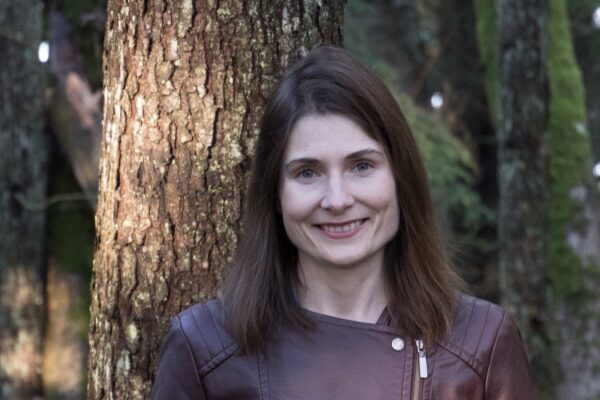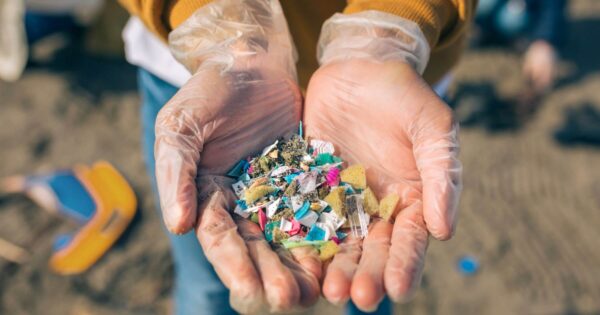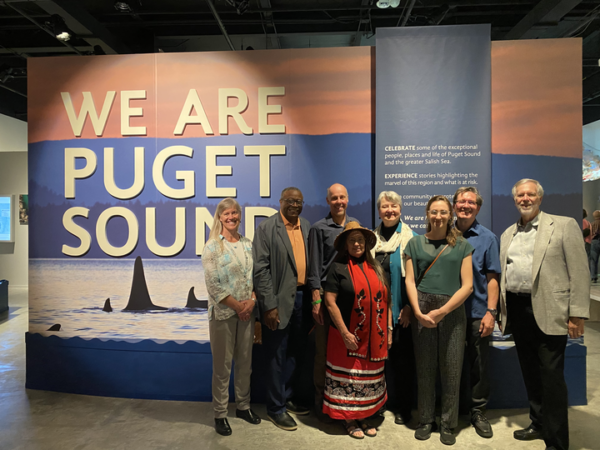On November 18, state legislators and staff, along with members of the Department of Ecology and Puget Sound Partnership joined a WEC-organized South Sound Stormwater Tour. To start off the day, participants were given a demonstration of low-impact development technologies at the Washington Stormwater Center (a collaboration between Washington State University and the University of Washington), along with a close up look at cutting edge research studying the impacts of polluted runoff on Coho salmon. Next, the tour made its way around Tacoma and Puyallup to visit on-the-ground, green stormwater projects retrofitting parts of South Sound’s urban areas. With city stormwater engineers as our guides, we toured everything from a stadium parking lot built with permeable pavements to rain gardens incorporated into an old railroad track in downtown Tacoma – all telling the story of how cities and counties are starting to think big about greener approaches to stormwater management with the help of state dollars that WEC advocates for in the legislature.
The reality is polluted stormwater runoff continues to pose one of the greatest threats to the health of Puget Sound. Some of the hardest work is taking urban centers that are already paved over and building projects that help them act like forests that use natural processes to filter water, while continuing to be a built community where we live, work, and play. We all must do our part.
The great news is – with folks like the staff at Washington Stormwater Center, stormwater engineers in city government, watchdogs at Ecology and the Partnership, and our legislative champions – we will continue to make progress and chip away at the challenge. WEC has a key part to play as well. WEC will continue to work hard to keep the rules around stormwater strong, to advocate for state funding for retrofit projects around the state, and to educate and engage the public and elected officials.
Quick Look: The Problems and Solutions
- The Problem: As rain flushes over our roads and roofs, the water mixes with oils, chemicals, pet waste, and other pollutants before making its way to our waters. For over a century, we either neglected this problem entirely or only sought to pipe the pollution as quickly as possible to a nearby river or stream. It will take years to correct the mistakes of the past.
- The Solution: We need to change habits: fix leaky cars, pick up after our pups, and keep trash out of our storm drains. We also need to rethink stormwater management. We need more rain gardens, more bioswales, more green roofs, and more permeable pavements. Too often, we are still piping runoff straight to our waters without any treatment. But there is a tried and true solution: natural hydrological processes have proven to provide the best treatment. The more runoff we can filter through soil, back into the ground, the better.



